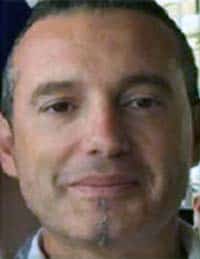In spite of all the talk of leaving the investigations to run their course before pronouncing judgement, the government has had a theory about who killed Daphne Caruana Galizia and it has been briefing the international press on that theory with a nudge and a wink couching a cover-up as a genuine tip-off.
But a tip-off from this government and its spokesmen is not a genuine provision of information. Everything is spin. And this is the most important spin of them all: a spin away from the truth about the first successfully targeted political assassination in the country’s history.
Many international journalists presumed the good intentions of the government, so eloquently pronounced in that first statement by the prime minister, minutes after Daphna Caruana Galizia was killed, that no stone would be left unturned until the truth is found. And they ran away with the story of how diesel smuggling and arrests in Sicily are tied to her murder.
It all smelt a little bit off from the get go. The arrest of Darren Debono two days after the murder having been followed and chased for months by the Italian police, and who waited for him to step into Italian territory rather than ask the Maltese to arrest and extradite him, all felt a little bit too convenient.
Daphne reported extensively on diesel smuggling but so did others, particularly in the Italian press. It’s true you can never really know what is inside a killer’s head. Pure revenge may be a greater motivation than a strategic intention to prevent someone from making further revelations.
But it was particularly convenient for the government to have a widely held theory that someone with no political connections committed the murder penetrate the collective psyche. It would never need to be proven because, after all, perception is more important to this government than conviction and justice.
If the perception that smugglers unconnected with politics committed the murder sets in, the government could absolve itself from any relationship with the people who commissioned the crime. It could also turn the guns on its critics, accusing them of politically instrumentalising a crime perpetrated by the underworld.
It would never need to prove Darren Debono did it. It would just need to have enough people thinking that he committed the crime and, perhaps because of police incompetence, perhaps because of lack of cooperation from the Italians, perhaps because the tracks have been well covered by the perpetrators, the killer or killers are not brought to conviction.
This did not start yesterday. Silvio Valletta, spouse of a government minister and lead investigator in this crime, privately briefed the press that this was no political killing.
 And The Times of London today reports that “pro-government sources have linked the murder to Darren Debono, an alleged Maltese fuel smuggler who was arrested by Sicilian police the week Caruana Galizia died”.
And The Times of London today reports that “pro-government sources have linked the murder to Darren Debono, an alleged Maltese fuel smuggler who was arrested by Sicilian police the week Caruana Galizia died”.
“‘Debono has said he is tranquil because he is totally unconnected with the death of Caruana Galizia,’ Luigi Latino, his Italian lawyer, said”.
Now I will not take Darren Debono’s lawyer’s word on anything. Nor will I take the word of pro-government sources who are just as motivated as Darren Debono to make the rest of us think someone they do not know commissioned the assassination of Malta’s foremost journalist.
The Times of London seems unimpressed with its “pro-government sources”. Their report leads with the fact that “the Maltese government is fighting to stop the publication of new allegations about ministers taking kickbacks from rich Azerbaijanis, which appear to back up claims made by the murdered journalist Daphne Caruana Galizia”.
They interview whistle-blower Jonathan Ferris and are particularly interested by the efforts of the Attorney General to shut him up and the threats from government spokesmen of retribution served to Jonathan Ferris should he say more.
That is the story to watch.
This website will over the next few days be podcasting a detailed interview with Jonathan Ferris.